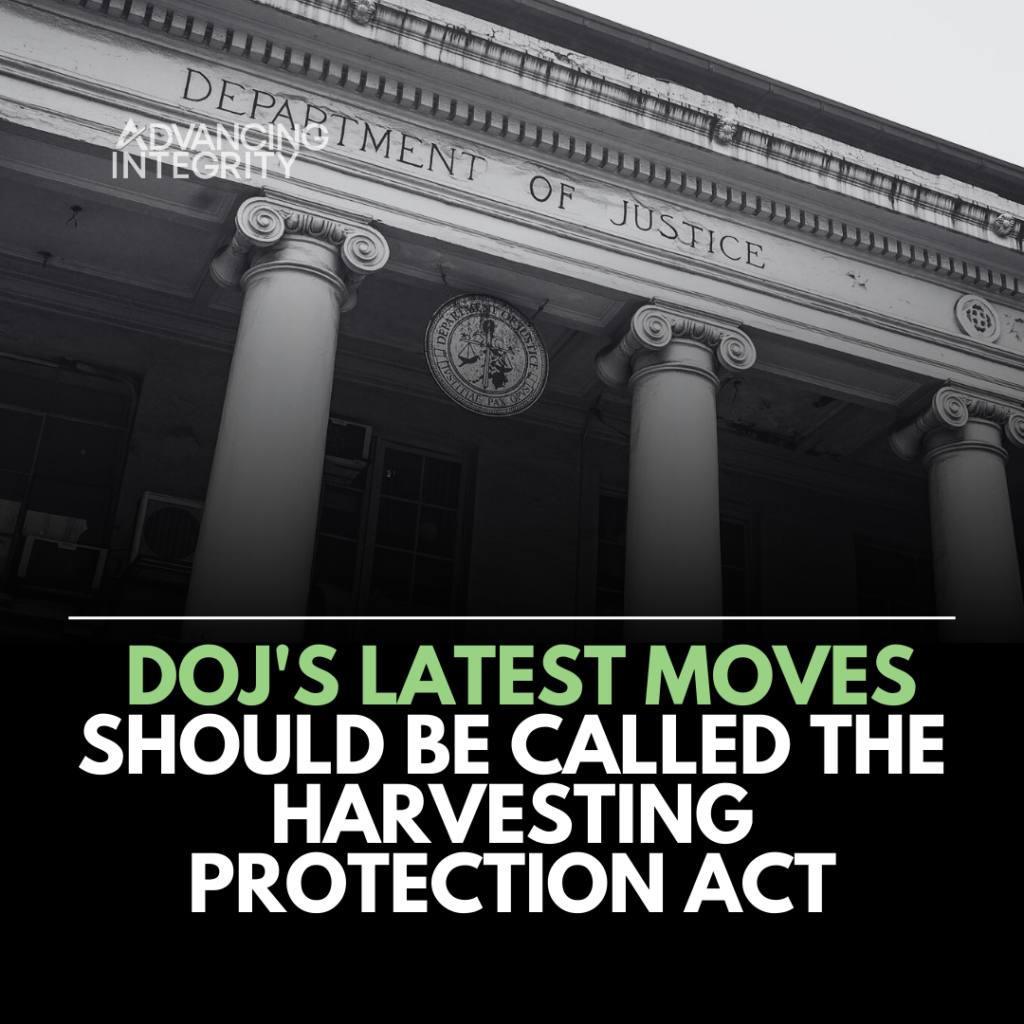The Department of Justice (DOJ) recently announced significant changes to its election policing strategy following Merrick Garland’s widely reported flag plant. Proponents of election integrity need to be aware of the ramifications of these new plans, with a particular focus on post-election audits and canvassing.
At face value, the DOJ is trying to scare off post-election efforts to ensure votes were cast legally. They’re doing this under the guise of preventing voter intimidation. This new policy poses a risk to the integrity of elections and the ability to ensure that votes are not harvested.
As election integrity advocates have become wise to mail-in ballot harvesting tactics, post-election audit processes have been developed and implemented. Efforts aimed at ensuring the accuracy of the voter rolls and the protection of voters vulnerable to harvesters have been launched across Texas and the nation.
It’s these efforts that the DOJ appears to be targeting. The key changes announced by the DOJ include:
- Enhanced monitoring of election processes to prevent voter intimidation.
- Increased scrutiny of post-election canvassing efforts ensures they are conducted in a manner that respects voters’ rights.
- New guidelines for states and local election officials on how to conduct post-election audits in a way that complies with federal law.
Read on face value the DOJ appears to be improving election integrity and assisting voters, however, a careful read between the lines exposes the truth.
The first clue is in one of the more troubling releases entitled, “Federal Law Constraints on Post-Election ‘Audits’”. Early in the document it quotes a statement saying, “‘The November 3 [, 2020] election was the most secure in American history,’”. It continues by stressing the importance of protecting and preserving election records. Again, that sounds great, election integrity advocates would agree. That is until that section ends by warning against allowing those advocates access to those records.
Transparency is crucial for trust. Citizens must be able to access election records and conduct their own “audits” of elections. Yes, these records must be protected from bad actors, but you can have transparency and maintain the chain of custody at the same time.
The next section focuses directly on voter intimidation. It warns of civil and criminal penalties for those who defy the DOJ with threats including, “suggesting to individuals that they will face adverse social or legal consequences from voting.” In other words, if an election integrity advocate tells someone that if they are not a citizen and they cast a ballot, they could face harsh penalties, that advocate is now the one facing harsh penalties. Advising voters to put their correct residence on their voter registration card is now considered voter intimidation and could land you in the DOJ crosshairs.
Even attempting to “contact individuals face to face to see whether the individuals were qualified voters who actually voted” is intimidation.
Post-election canvassing is a critical component of the election process. Voter registrars and state legislators want proof that there is a problem. That proof can only come from knocking on doors and talking to voters. These efforts are not intended to intimidate anyone, they are actually intended to protect voters.
Citizens deserve to know if someone illegally cast a ballot in their name or if someone is improperly registered at their home. Citizens deserve to have accurate voter rolls so their votes are not canceled out or diluted by illegal votes. Citizens deserve the secrecy and security of a ballot cast in person, inside the polling place. No one should coerce them into voting by mail so they can be vulnerable to vote harvesting.
However, the DOJ’s latest announcement could potentially impede these efforts. The enhanced monitoring and scrutiny of post-election canvassing could create a chilling effect, making it more difficult to conduct these critical checks. Texas needs to stand up to the DOJ. Recently, individual states have barred the DOJ from monitoring elections, a list that continues to grow as federal bureaucracies are weaponized under the Biden Administration.
It remains to be seen how these changes will play out in practice and whether they will ultimately enhance or undermine the integrity of the election process, but election integrity advocates need to be vigilant.
Contact Advancing Integrity to learn how to conduct post-election canvassing in a way that will withstand scrutiny.

